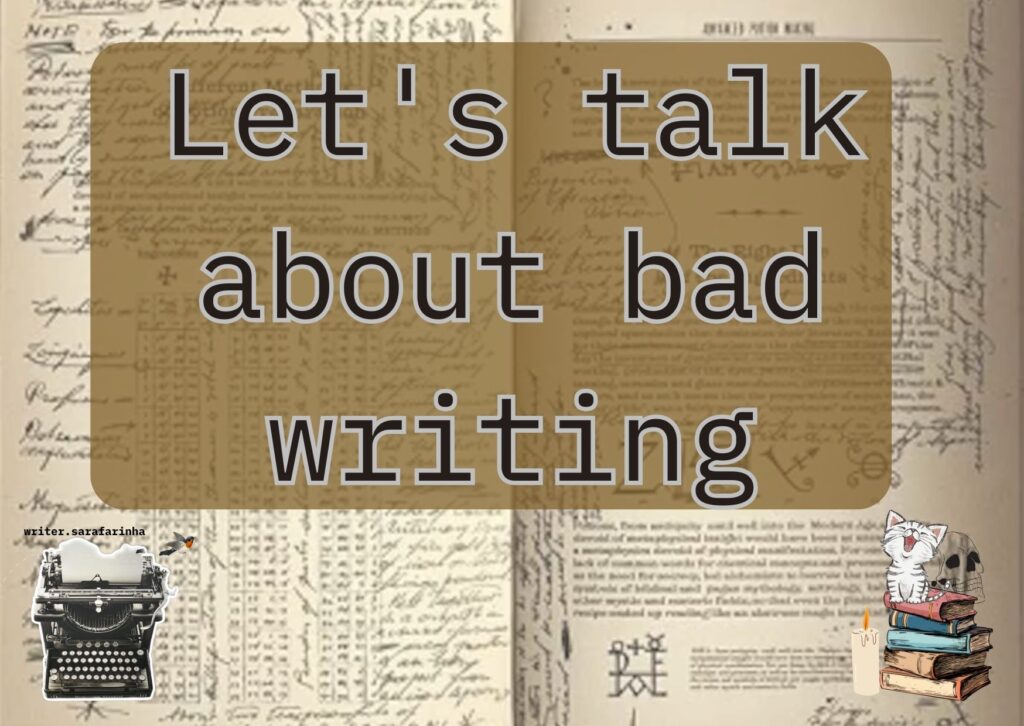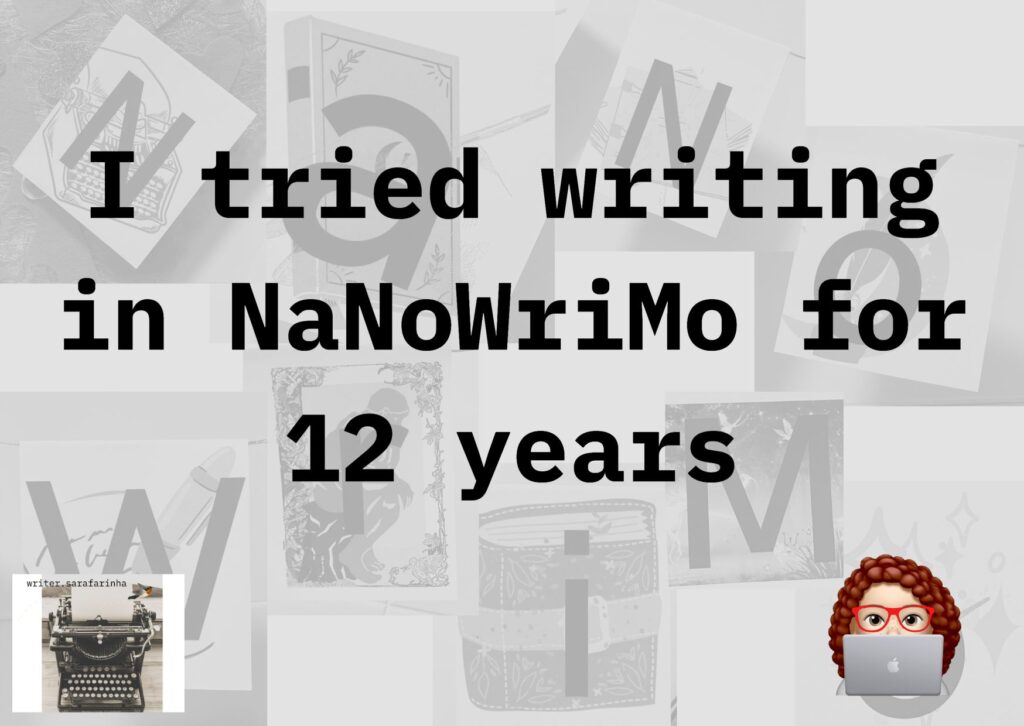
Hello all! Welcome back to this blog.
Let’s talk about writing… let’s talk about bad writing.
Writing is a skill. We learn the basics, we spend years practicing, we devote ourselves to the genre or outlet of our choosing (because there’s a difference between writing fiction, a blog post, or an essay), we keep at it until magic is made.
“At its most basic we are only discussing a learned skill, but do we not agree that sometimes the most basic skills can create things far beyond our expectations? We are talking about tools and carpentry, about words and style . . . but as we move along, you’d do well to remember that we are also talking about magic.” — Stephen King, “On Writing”
“On Writing” has been one of the books about the writing craft, that I always see mentioned, whenever there’s somebody writing about writing.
And Stephen King isn’t afraid to point out bad writing practices.
I have read this book a few years ago (in 2011, according to Goodreads), and it made an impression. Still, I haven’t reread it… or hadn’t until this post put me in the mood to go and find it. And to find it I did.
“I believe large numbers of people have at least some talent as writers and storytellers, and that those talents can be strengthened and sharpened. If I didn’t believe that, writing a book like this would be a waste of time.” — SK
About Talent and Practice:
Talent is overrated. If we just look for potential, we see it everywhere. But to have it materialize into actual value, there’s another matter entirely. And to develop writing skills is essential to be a fiction writer.
I recall the first time I understood the diference between Showing and Telling. I remember wanting to do a just Showing book. Yeah! People do have strange ideas when they come across something interesting. I still have that moment near to my heart. Why? Because in the next moment, I figured out that to do all Show and no Tell would do a disservice to the story.
I found that some formats gain from a prevalent Showing instead of Telling. And that in every work we need to have exposition as well as action.
Some of these things I learned only with practice. After understanding what it meant, and analysing what I was doing, and flipping the text around just to find out if there was a better way to write the tale.
To write that “the rain poured down, drenching his clothes.” or to write “In seconds, the dark skies were upon him, his clothes weighted a ton, and the cold clang to his skin, as the downpour hit him.”, gives us ideas on how to pull the reader in, and make him feel that he is right there with our character… getting outright rained upon.
As E.L. Doctorow said: good writing has to evoke a sensation in the reader – ‘not the fact that it is raining but the feeling of being rained upon.’
These are learned skills and still we need to let ourselves loose so we might find magic in it. Understanding the rules, learning the basics and attuning the skills we need to write, clears the fundamental space we need to make art happen.
The object isn’t to make art. It’s to be in that wonderful state which makes art inevitable. — Robert Henri
And this is not just in inspirational terms but also in craft basic skills.
About Fear and Bad Writing:
We fear to write what we know. So we choose not to write at all. We fear to write somethings, so we choose the most bland and uninteresting thing there is. We fear not to be good enough, so we end up quitting. We loose dept and strength when we let fear tell us what to do.
I’m convinced that fear is at the root of most bad writing. If one is writing for one’s own pleasure, that fear may be mild—timidity is the word I’ve used here. If, however, one is working under deadline—a school paper, a newspaper article, the SAT writing sample—that fear may be intense. — S.K. (p.127)
But when some sort of practice takes place, and we keep at it, there’s a sense that working through the fear is part of this process. There’s always fear when something is important enough.
But that’s why we have courage.
Every time fear shows it’s face, courage comes right behind him and makes him fall back. At least that’s what is expected.
And it will do it every time. Not just a one time thing, but every time something makes us doubt and fear, courage has to step in and put fear in his place.
Just Writing:
Bad writing is fearful behaviour. To choose this word or that word, overly preoccupied and attentive to what might sound like, and be like, and having other people’s rules in mind all the while we are trying to construct something… it’s tiresome and not a good process to have at all.
Good writing is often about letting go of fear and affectation. Affectation itself, beginning with the need to define some sorts of writing as “good” and other sorts as “bad,” is fearful behavior. Good writing is also about making good choices when it comes to picking the tools you plan to work with. — S.K. (p.128)
To write as good as we are able, means to choose our toolbox (Stephen King’s concept) with intention and knowledge. To have a discernment about what goes inside our writing craft toolbox so we are able to build with using the good tools we have been collecting.
Bad writing might be just unexperienced writer. And a competent writer might be an uninspired one. But a good writer? That takes talent, practice, a good toolbox and some extraordinary instincts… and life experience.
I can’t let this one out. Life experience is what shines through in the mist of our works. The things we experienced, the things we lived through, the knowing in our bones what it’s like to be there, to feel it. It’s the school of life experience that keeps a writer going and gives dept to his work.
As Georgia O’Keeffe wrote, in one of her letters:
I feel that a real living form is the result of the individual’s effort to create the living thing out of the adventure of his spirit into the unknown — where it has experienced something — felt something — it has not understood — and from that experience comes the desire to make the unknown — known. (…) Making your unknown known is the important thing — and keeping the unknown always beyond you (…) that you must always keep working to grasp (..) — Georgia O’Keeffe
We live, we read, we write. A lot. Of all three.
